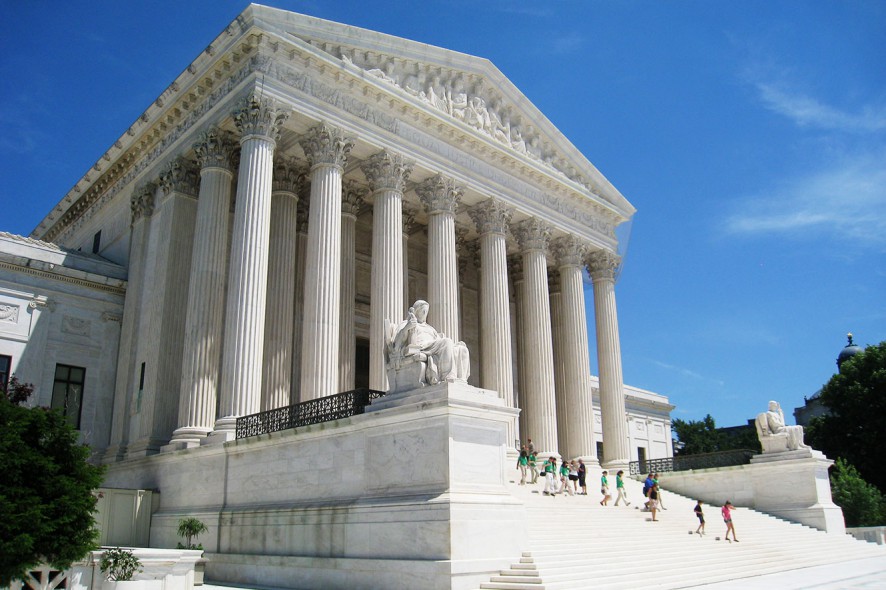Supreme Court of The United States: While deciding the application for injunctive relief brought in by the South Bay United Pentecostal Church, against the Executive Order issued by the Governor of California to address Covid-19 emergency, wherein numerical restrictions were placed on public gatherings like places of worship, the 9- Judge Bench of the Court, with a ratio of 5:4 refused to grant any relief to applicant church. The majority comprising of John Roberts, C.J., and Ruth Bader Ginsburg, Stephen Breyer, Sonia Sotomayor and Elena Kagan, JJ., held that the Governor’s Executive Order aims to limit the spread of COVID–19, that has killed thousands of people in California and more than 100,000 nationwide. It was held by the majority that the numerical restrictions are temporary and although they have been placed on places of worship, the restrictions appear in sync with the Free Exercise Clause of First Amendment. The majority further observed that, “The precise question of when restrictions on particular social activities should be lifted during the pandemic is a dynamic and fact-intensive matter subject to reasonable disagreement.”
The Governor had issued an Executive Order, via which attendance in public and religious gatherings had been limited to 25% of building capacity or 100 attendees, whichever is lower. The Church had applied for temporary injunctive relief from California’s 25% occupancy cap on the condition that they are willing to abide by the rules of social distancing and maintenance of hygiene. They contended that that ‘comparable secular businesses’ such as factories, stores, pharmacies, shopping malls, pet grooming shops, bookstores, florists, hair salons etc. have been left out of the 25% occupancy cap, thereby revealing discriminatory attitude of the administration towards religious places.
Brett M. Kavanaugh, Clarence Thomas, Samuel A. Alito and Neil M. Gorsuch, JJ., delivered the dissenting opinion. They agreed with the contentions of the applicant that unlike religious gatherings, ‘comparable secular businesses’ have not been subjected to the 25% occupancy cap. It was noted by the minority that Executive Order of the Californian Governor discriminates against the religious worship services, therefore it contravenes the Constitution. It was further observed that Californian Administration has not been able to provide a compelling justification for its discriminatory Order which according to its rules should have “a compelling governmental interest” and “narrowly tailored to advance that interest’. The US Constitution explicitly bars the government from using religion as a basis of classification for the imposition of duties, penalties, privileges or benefits. In its concluding remarks the dissenting Judges pointed out that, “The State cannot assume the worst when people go to worship but assume the best when people go to work or go about the rest of their daily lives in permitted social settings”. [South Bay United Pentecostal Church v. Gavin Newsom, 2020 SCC OnLine US SC 1, decided on 29-05-2020]






